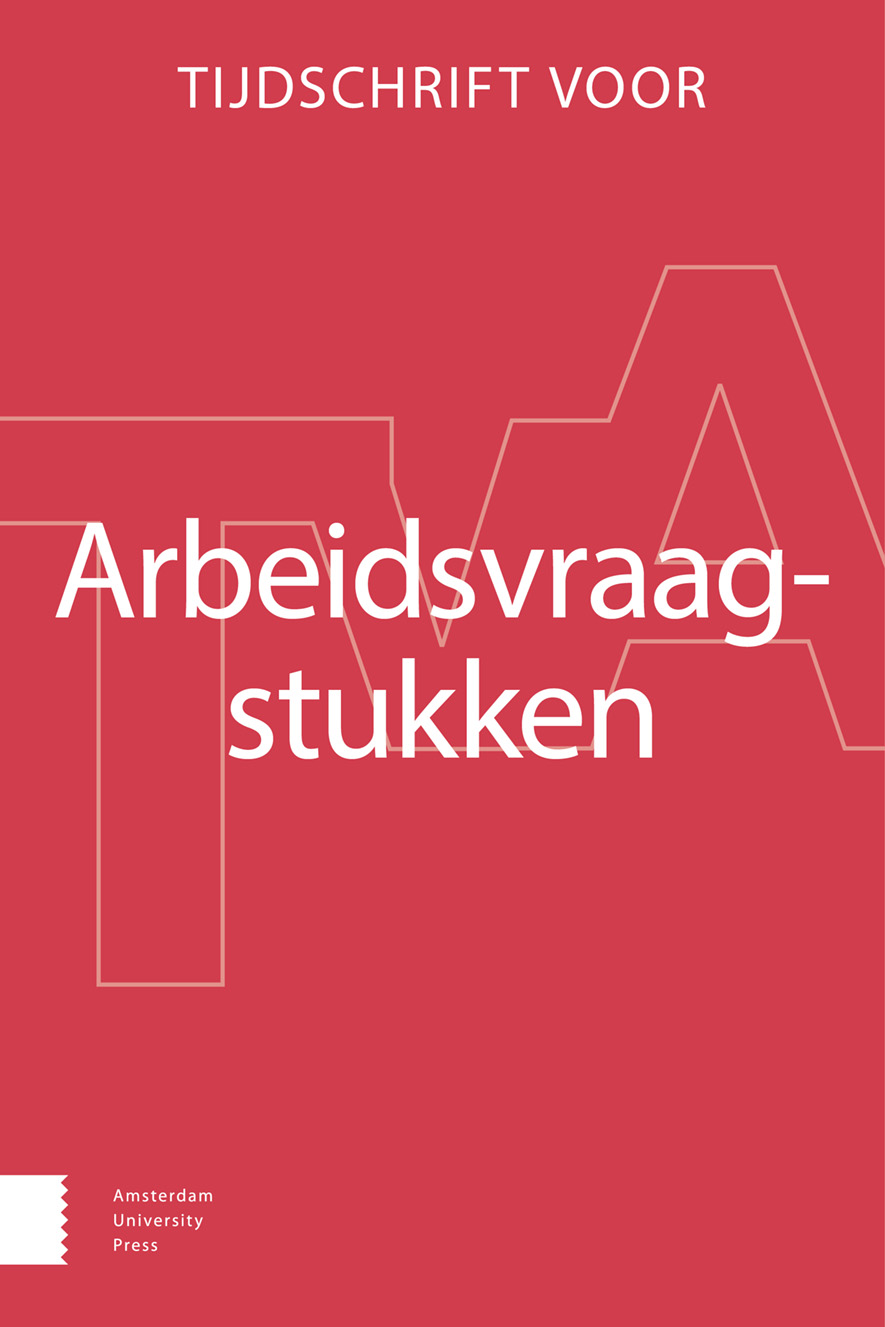-
oa De sociale identiteit van werklozen: gevolgen voor het welzijn
- Amsterdam University Press
- Source: Tijdschrift voor Arbeidsvraagstukken, Volume 30, Issue 2, Jun 2014,
Abstract
The social identity of unemployed: effects on well-bein
Based on Tajfel and Turner's (1979) Social Identity Theory, we distinguish two aspects of the social identity of the unemployed: social comparison with the employed (the in-group image of the unemployed) and social identification with the unemployed. We expect that the unemployed will evaluate their group in more negative terms compared to the employed. A negative in-group image and the social identification with the unemployed are expected to correlate negatively with various aspects of well-being. Finally, we hypothesise that cultural and economic conservatism and the traditional work ethic are associated with a negative in-group image and a lower identification with the unemployed. Data of unemployed individuals (N = 300) were gathered by means of a written questionnaire. The results confirm our hypotheses regarding the in-group image and the association between both aspects of social identity and various well-being measures. Only the traditional work ethic was found to correlate negatively with the in-group image, whereas only economic conservatism correlated negatively with the identification with the unemployed. The theoretical and practical implications of our findings are discussed.


